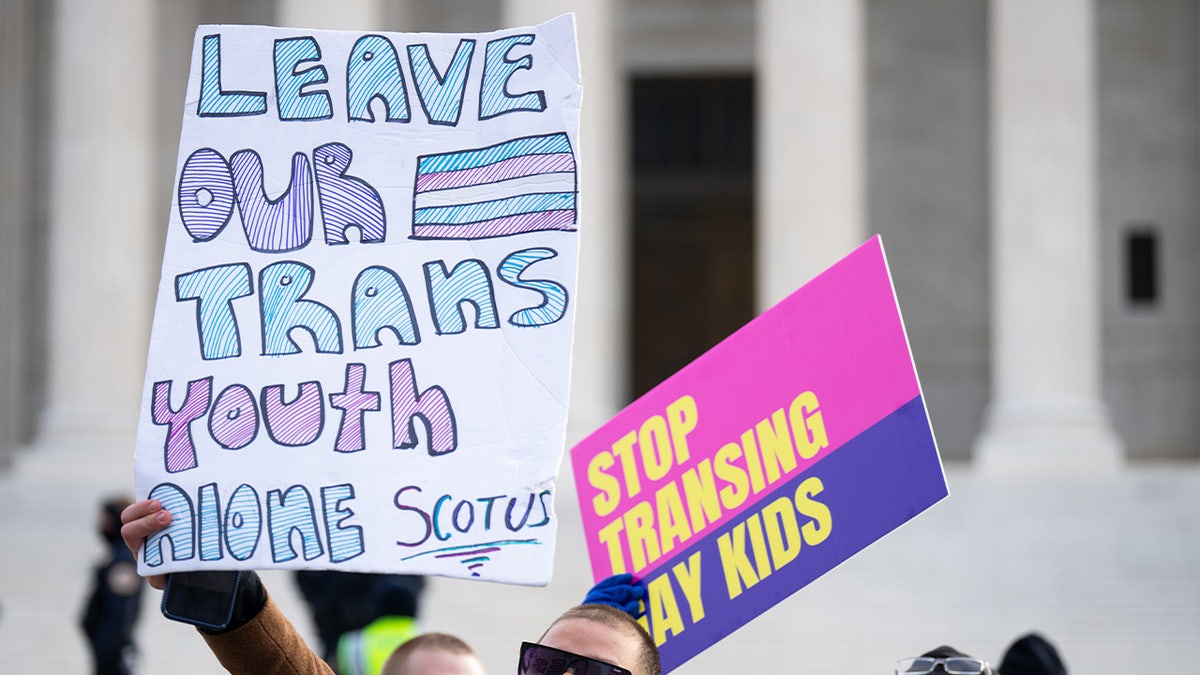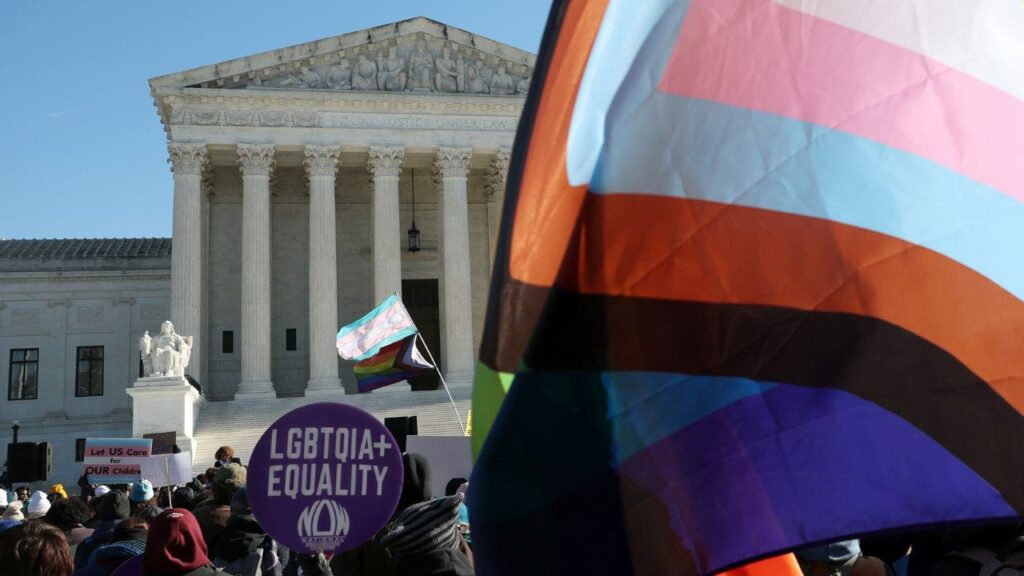NEWYou can now listen to Fox News articles!
A legal fight over public school bathrooms and transgender students is now in the hands of the Supreme Court, where South Carolina Attorney General Alan Wilson believes it will be a “death knell” for what he calls the “radical, hard-left agenda.”
South Carolina asked the Supreme Court to pause a federal appeals court order granting one transgender high school student access to boys’ bathrooms, a move the state says clashes with its law requiring facilities be based on biological sex and comes just months after the court upheld Tennessee’s ban on gender treatments for minors.
In an emergency filing last week, Wilson, alongside state officials, said the ruling leaves the Berkeley County School District “stuck between an impossible rock and hard place.”
“I believe that this case in the Fourth Circuit, that could ultimately be decided by the U.S. Supreme Court, will be a death knell in that radical, hard-left agenda,” Wilson told Fox News Digital in an interview Tuesday. “This case is not only about the state’s ability to protect students’ privacy and safety, but it’s about the rights of the students themselves to be secure in their schools.”
DENVER SCHOOL’S ALL-GENDER BATHROOMS VIOLATE TITLE IX, EDUCATION DEPARTMENT FINDS
The case brings biology-based bathroom rules for students back before the nation’s highest court, just months after the Supreme Court upheld a state ban on gender transition treatments for minors — a decision South Carolina says should guide lower courts.
“It underlines the importance of states’ ability to protect their own students and their own constituencies within their states,” Wilson said. “This is one of the issues that was brought up in the Skrmetti decision.”
The Fourth Circuit ruled last month that the student, identified in court documents as “John Doe,” be allowed an exception to use the boys’ restroom pending the lawsuit. The decision relies heavily on Grimm v. Gloucester County School Board, where the court held that banning a transgender boy from using the boys’ restroom violated the equal protection clause and Title IX.
But South Carolina officials argue that Grimm is an outdated “discredited outlier” and that federal courts should follow the United States v. Skrmetti decision, since “the Plaintiffs are unlikely ultimately to prevail,” according to the emergency injunction. In the Skrmetti decision, the justices ruled in favor of Tennessee’s ban on medical gender transition procedures for minors.
SCOTUS RULES ON STATE BAN ON GENDER TRANSITION ‘TREATMENTS’ FOR MINORS IN LANDMARK CASE

“As both this Court and the Fourth Circuit have acknowledged, a primary reason for this biology-rooted convention is the promotion of privacy,” the emergency filing reads. “But recent social developments have sought to change that. Over the past fifteen years, the number of children and adolescents experiencing gender dysphoria has skyrocketed.”
The contested South Carolina law, enacted in July 2024, stipulates that school districts risk forfeiting 25% of the state’s Department of Education funding if they permit transgender students to use facilities different from their biological sex.
Doe and his parents first sued the state in November 2024.
In January, the Trump administration’s Education Department directed K-12 schools and colleges to recognize Title IX protections strictly on the basis of biological sex — reversing the Biden administration’s 2024 rewrite of the rule. Title IX is the federal law that bars discrimination on the basis of sex in any program or activity receiving government funding. Under former President Joe Biden’s 2024 rule, the term “sex” was broadened to cover gender identity and sexual orientation.
CDC OFFICIAL INCLUDES ‘PREGNANT PEOPLE’ TERMINOLOGY AND PRONOUNS IN RESIGNATION LETTER
Doe’s attorney, Alexandra Zoe Brodsky, told Fox News Digital in a statement that “South Carolina wants the Supreme Court to take the extraordinary remedy of intervening in an ongoing lower court appeal – all because the state wants to stop one ninth grader from using boys’ restrooms while that appeal proceeds.”
“This case does not present the sort of emergency that would justify such intervention,” the statement continued. “As the Chief Judge of the Fourth Circuit recently observed, ‘there’s zero evidence that [our client’s] use of boys’ restrooms presents even a remote possibility of harm to anyone. But the evidence of state hostility toward him overwhelms.’ Indeed, no classmate has ever complained about our client using boys’ restrooms. Yet South Carolina is rushing to the Supreme Court to get a permission slip to subject him to state-mandated discrimination at school, including the school discipline that drove him out of middle school last year. The Supreme Court should deny South Carolina’s unusual request.”
The Supreme Court could issue an emergency response as early as Friday. The court’s decision could come without full briefing or oral argument, as is typical of rulings made outside the high court’s normal, full process.
Read the full article here

